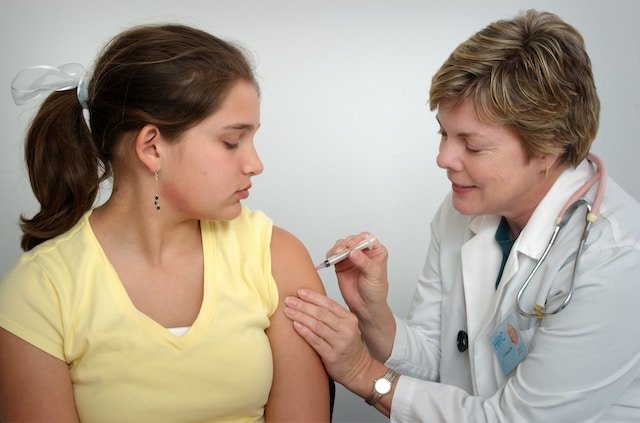
In a new study, researchers found that a single dose of the human papillomavirus (HPV) vaccine is as effective as multiple doses for preventing preinvasive cervical disease, which can later develop into cervical cancer.
The research was conducted by a team at The University of Texas Medical Branch at Galveston.
HPV is the most common sexually transmitted infection in the United States, and persistent infection with certain types of the virus can cause cervical cancer.
To prevent infection, the Centers for Disease Control and Prevention recommends that adolescents—both boys and girls—under the age of 15 years receive a two-dose schedule of the HPV vaccine.
To determine the effectiveness of other dose schedules, the team examined information on females aged 9 to 26 years who were unvaccinated or who received one or more HPV vaccine doses between January 2006 and June 2015.
The analysis included 133,082 females (66,541 vaccinated and 66,541 unvaccinated).
The researchers found for females ages 15 to 19 years, those who received one, two, or three doses of the HPV vaccine had lower rates of cervical disease than people who were unvaccinated.
Within five years, 2.65% of unvaccinated teens aged 15 to 19 years developed the cervical disease, compared with 1.62%, 1.99%, and 1.86% in the one-, two- and three-dose groups, respectively.
The risk of cervical disease was 36%, 28%, and 34% lower for adolescents who received one, two, and three doses, respectively, compared with adolescents who were unvaccinated.
For the youngest (less than 15 years old) and oldest age groups (20 years and older), the team did not find big differences among the vaccinated groups in terms of risk for cervical disease.
The team says this study shows the impact of vaccinating at younger ages and its lasting long-term protection against cervical cancer.
It is important to educate parents about the need to vaccinate their children.
The lead author of the study is Ana M. Rodriguez, MD, MPH.
The study is published in Cancer.
Copyright © 2019 Knowridge Science Report. All rights reserved.



